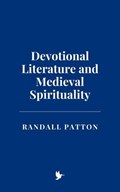This book offers a comprehensive exploration of devotional literature and medieval spirituality, tracing their evolution from the early Christian era through to the dawn of the Renaissance and the modern period. Beginning with an in-depth analysis of the historical, theological, and philosophical underpinnings of Christian devotion in the medieval period, the book examines the central role that devotional literature played in shaping both personal piety and institutional religious practices. From the early writings of the Church Fathers and the rise of monastic spirituality to the flourishing of mysticism and the intellectual movements of the Renaissance, the text highlights the ways in which devotional literature was used to foster a deeper connection between the individual believer and God.
The book also explores key theological shifts, such as the rise of Scholasticism, the Protestant Reformation, and the Catholic Counter-Reformation, and their impact on devotional thought. The works of influential figures like Augustine, Bernard of Clairvaux, Thomas à Kempis, Erasmus, and Martin Luther are examined to show how their ideas transformed Christian devotion, leading to the emergence of more personalized and direct forms of spirituality. Through detailed analysis of major devotional texts, including the Imitation of Christ, the Spiritual Exercises, and the Pietà, the book traces the development of devotional practices that emphasize inner reflection, personal engagement with Scripture, and the pursuit of mystical union with the divine.
By analyzing both the intellectual and experiential dimensions of medieval and Renaissance spirituality, this work offers insight into the lasting legacy of devotional literature in shaping modern Christian life. From the intellectual rigor of Scholastic theology to the mystical meditations of 16th-century figures, the book demonstrates how devotional literature provided the framework for spiritual practices that have continued to influence Christian thought and devotion well into the modern era.

